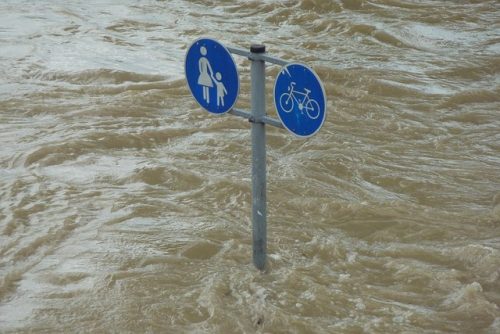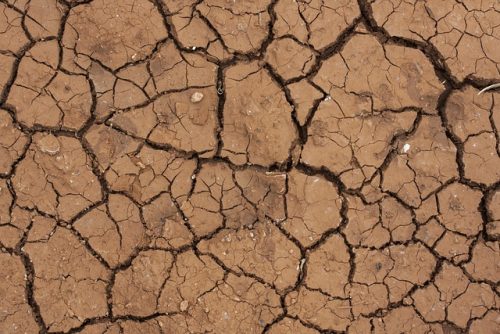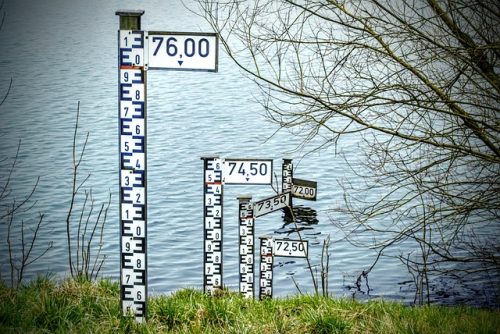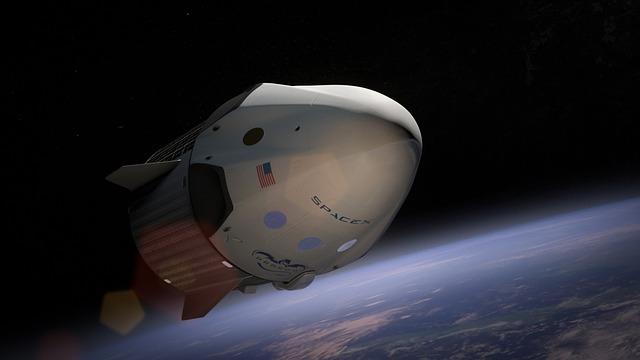What is Climate Change? What is the Cause of Climate Change?
First, let us define climate. Climate is the long term weather pattern for at least 30 years of a particular region.
Unlike weather that changes day to day, climate changes over a period of longer time even taking centuries to millennia.
Climate Change can therefore be defined as the changes or variation in the climate of a region due to natural phenomenon such as excessive rain, temperature rise or fall but mostly, it is human driven especially due to the emission of greenhouse gases. These emissions in turn influence other factors that affect the climate on a whole and as a result climate change occurs.
Check out: What is Climate Change Adaptation? – Importance and Methods and Climate Change Adaptation Methods and Mitigation Strategies.
How has Climate Change Impacted Pakistan?
Even though Pakistan’s emissions of greenhouse gases is very well below the standard amount of emissions allowed to emit for a country; contributing not even 1% to the global emissions. Yet, Pakistan is one of the countries that is extremely vulnerable to climate change effects. As it stands, Pakistan had been hit by extreme flooding in late 2022 where one-third of the country was submerged and more than 30 million people have been displaced, along with their settlements and properties still under water.
The melting of the Himalayan glacier due to climate change and global warming had increased the severity of these floods and Pakistan was unjustly made to bear the brunt of its consequences. The previous year, there were extreme reports of heat waves across the country and then an unusually heavy monsoon season which culminated into the horrific floods. Also Check out, Monsoon Season of Pakistan- Importance and Problems
For further information on the steps taken to tackle these floods, check out Pakistan Flood Mitigation Measures and Disaster Management.
What is the Role of Agriculture in Pakistan
Pakistan is an agricultural country whose economy and more than 42% of the population is directly involved in the sector while 58% are indirectly involved or somehow rely on it. So it is no surprise that climate change induced floods would have caused significant damage to the agriculture sector as many cultivation lands are now under water.
Impacts of Climate change on Agriculture sector:
-
FLOODS:
1. Loss of labor force and cultivation lands: first and foremost comes the loss of human life in the regions hit by flooding which happened to be most rural areas with flat plains and cultivation lands.
2. Saline soils: highly flooded areas that are still submerged will have high salinity in the future for years to come as it will take considerable time to reduce the salt levels left by flooded water on these soils and make them fit for growing crops. This means that a large area of land will be useless and no cultivation can take place on it.
3. Blow to the national economy: agriculture is the backbone of our economy. Due to these recent floods, and the above mentioned points especially the increased salinity of the soil, many lands cannot be used to cultivate crops and therefore this will reduce the number of crops grown annually by a large margin and as a result crops would be scarce and become sought after that will again result in inflation and increase the overall cost of living.
Also read: Flash Floods – Causes, Effects, Prevention and Management
-
SOIL QUALITY:
1. Dry Soils: due to the changing climate, there is a rise in temperature and as a result soil moisture is lost which means water vapor which is a natural greenhouse gas is released into the atmosphere and because of the feedback cycle, soil continues to lose water and thus, water in the form of soil moisture that is essential for plant growth is unavailable for plant growth. Also check out: Soil Erosion and Degradation – Causes, Effects, and Solutions.

2. Nutrient depletion: crops will fail as adequate crops will not be present in the soil to grow as climate change will lead to loss of organic carbon from soil, soil erosion and also change the soil alkalinity which will make it difficult for the crops to grow.
-
WATER SCARCITY:
1. Shortage of Irrigation water: due to the lack of clean water supply and water ways being heavily polluted thanks to water pollution resulting from unsustainable agriculture practices such as pesticide use etc., crops needing excessive water such as rice which is also a staple food for many, are harder to grow since irrigation water has become inaccessible. Cholistan- a region in Pakistan is suffering particularly bad because of this water shortage. For more info: Climate Change Is Increasing Water Scarcity Around The World and Effects of Climate Change on Monsoon Season of Pakistan.

-
CROP FAILURE:
Extreme weather events due to climate change such as tropical cyclones and storms will uproot crops causing significant loss. Moreover, Experts have indicated that by 2040 Pakistan’s production value will decrease as there will be loss of crops like wheat and rice which is a very pressing matter to address since these two cash crops are not only valuable for the economy but are also the staple food for Pakistanis. Also read: Climate Change Causing Rice Crop Yield Reduction In Pakistan
For further reading, you may also be interested in Impacts of Climate Change on Agriculture in Pakistan
I hope you all liked this post! Please comment below if you have any suggestions, comments, or feedback! We at #envpk love hearing from our readers! Thanks!




